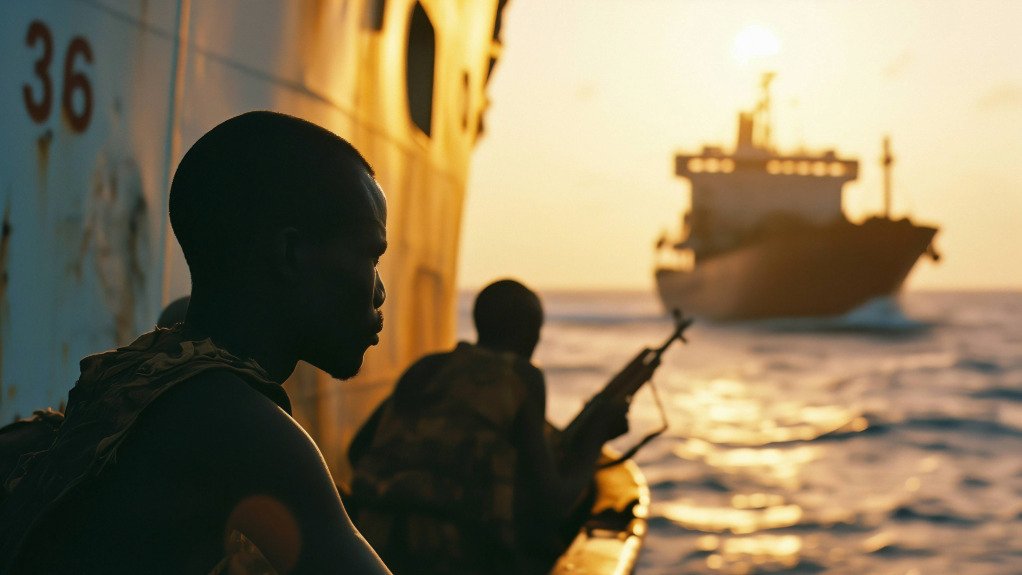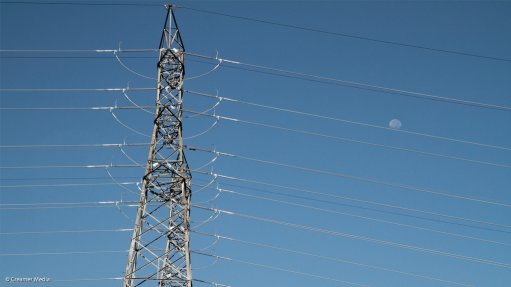Combatting resurgence of Somali pirate activity requires holistic approach, expert says
Maritime piracy along the Somali coast is seeing something of a resurgence in 2024 because the root causes on land have gone largely unaddressed and international support has declined, Transnational Organised Crime Southern Africa senior researcher Carina Bruwer has said.
She was speaking at the African Aerospace and Defence (AAD) trade show and exhibition at Air Force Base Waterkloof, in Centurion, on September 20.
“We've seen that if governments continue to rely on suppressing maritime threats only at sea, then they're going to come back, and piracy is a very good example of that. Yes, it's maritime security, but you have to address it both on land and at sea,” Bruwer said.
In its mid-year report released on July 11, the International Chamber of Commerce’s (ICC's) International Maritime Bureau (IMB) reported 33 incidents of piracy and armed robbery against ships globally in the first three months of 2024, up from 27 incidents for the same period in 2023.
Somali piracy incidents in particular were shown to have also increased as international navies have been leaving Somali waters to protect against repeated attacks by Yemen’s Houthi militia in the Red Sea and other regional waters.
The IMB reported five Somali piracy incidents in the first quarter of 2024, compared to zero incidents for the same period last year.
While this still represented an improvement over the 212 Somali pirate attacks recorded in 2011, Bruwer said that a resurgence in attacks over the past year was concerning and spoke to the fact that the root causes remained unaddressed.
“Of course, there have been improvements, but still not to the point where it's particularly difficult to leave from Somalia and intercept a vessel on the high seas. We know that illegal fishing in Somalia's waters continues, and the at-sea efforts that have been incredibly effective at suppressing piracy, although not eradicating it, have now been relaxed,” she said.
Bruwer noted that many fewer navies were now patrolling the area around Somalia and that its status as a Shipping Industry Indian Ocean High Risk Area was removed on January 1, 2023.
“The UN Security Council resolution authorising navies to go closer to Somalia to respond wasn't renewed in 2022. We also see that private vessels have dropped their guards, so they're no longer employing the private security measures they previously were,” she pointed out.
She said that another possible reason for the reemergence of piracy was that pirates were likely cooperating with Somalian Islamist terrorist organisation Al Shabaab, which was using pirate attacks as a form of income.
“Currently, the risk-reward calculation again favours pirates, where the chance of them succeeding in hijacking a vessel seems to be quite good. Ransoms have again started being paid for vessels to be released, and so there's an incentive for them to continue,” Bruwer said.
She further noted that on-land security efforts in Somalia had also diminished of late, owing to a diverting of national security resources towards trying to facilitate democratic elections.
Simultaneously, increased naval traffic around the coast of Africa over the past few years has also contributed to an environment of increased opportunity for pirates.
“Now that there are more vessels moving around the Cape of Good Hope, these threats are potentially going to increase. That's why we need to be ready to respond to them,” Bruwer said.
She said that ongoing international collaboration between States was necessary to keep African piracy from resurging to its 2011 highs.
“Transnational threats require transnational responses. You cannot address this in silos. You can do whatever you want in response to these threats, but because they are transnational, and these vessels are moving through multiple maritime territories, you have to do this collectively. However, until we have enough vessels at sea able to respond, we will have to rely on countries that have this ability, and they might be from the international community and not from Africa itself,” Bruwer said.
She emphasised the importance of private-sector participation in maritime security, as African States do not have the resources to combat it alone, given that other maritime security issues also needed to be seen to, such as drug smuggling, human trafficking, and illegal animal smuggling, among others.
“States alone cannot combat maritime security. Because the majority of the presence at sea is of private actors, we need to cooperate with them to ensure that maritime security is addressed. Until we have enough African vessels, I don't think we have a choice but to cooperate with the international entities that, yes, are here for their own interest, but we can leverage that for our own interest as well,” Bruwer said.
Article Enquiry
Email Article
Save Article
Feedback
To advertise email advertising@creamermedia.co.za or click here
Press Office
Announcements
What's On
Subscribe to improve your user experience...
Option 1 (equivalent of R125 a month):
Receive a weekly copy of Creamer Media's Engineering News & Mining Weekly magazine
(print copy for those in South Africa and e-magazine for those outside of South Africa)
Receive daily email newsletters
Access to full search results
Access archive of magazine back copies
Access to Projects in Progress
Access to ONE Research Report of your choice in PDF format
Option 2 (equivalent of R375 a month):
All benefits from Option 1
PLUS
Access to Creamer Media's Research Channel Africa for ALL Research Reports, in PDF format, on various industrial and mining sectors
including Electricity; Water; Energy Transition; Hydrogen; Roads, Rail and Ports; Coal; Gold; Platinum; Battery Metals; etc.
Already a subscriber?
Forgotten your password?
Receive weekly copy of Creamer Media's Engineering News & Mining Weekly magazine (print copy for those in South Africa and e-magazine for those outside of South Africa)
➕
Recieve daily email newsletters
➕
Access to full search results
➕
Access archive of magazine back copies
➕
Access to Projects in Progress
➕
Access to ONE Research Report of your choice in PDF format
RESEARCH CHANNEL AFRICA
R4500 (equivalent of R375 a month)
SUBSCRIBEAll benefits from Option 1
➕
Access to Creamer Media's Research Channel Africa for ALL Research Reports on various industrial and mining sectors, in PDF format, including on:
Electricity
➕
Water
➕
Energy Transition
➕
Hydrogen
➕
Roads, Rail and Ports
➕
Coal
➕
Gold
➕
Platinum
➕
Battery Metals
➕
etc.
Receive all benefits from Option 1 or Option 2 delivered to numerous people at your company
➕
Multiple User names and Passwords for simultaneous log-ins
➕
Intranet integration access to all in your organisation




















